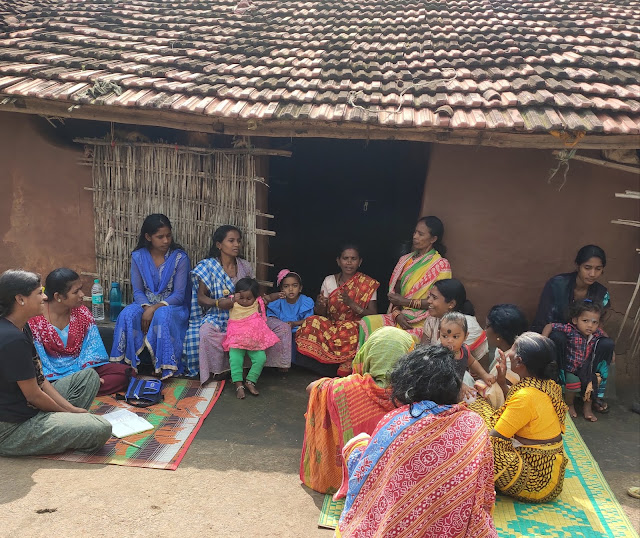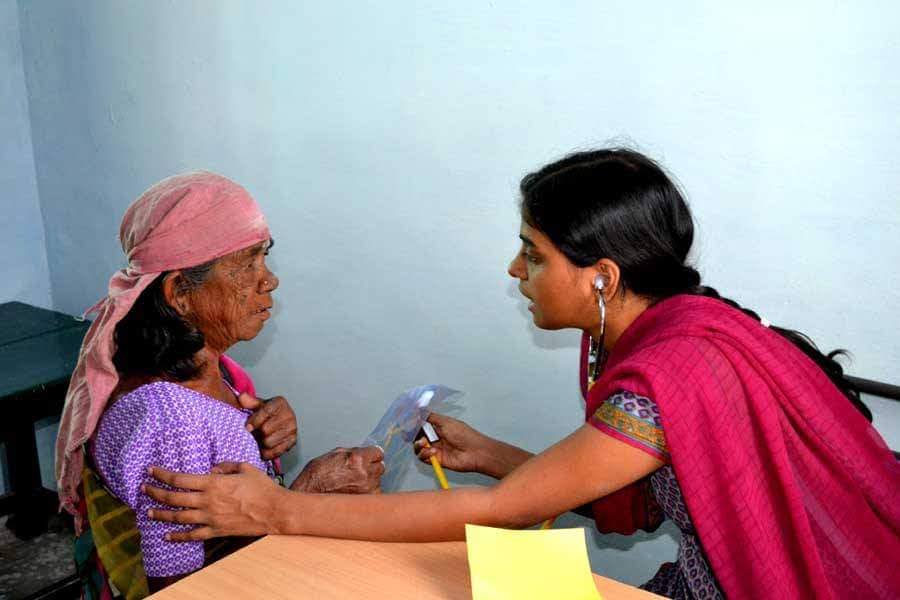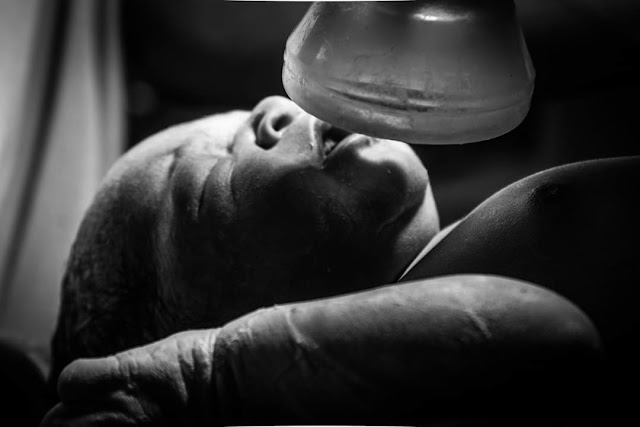Health - Perceptions and Misconceptions
"What is health without hospital?"
"That is health"
One of my mentors very calmly replied. It kind of shook me.
Last few weeks has been an entirely unexpected journey to understand the perceptions of health. I agreed to volunteer in a Health project by Living Farms(NGO in southern odisha working for sustainable agriculture), for one sole reason - the mere absence of a hospital. After visiting a few hospitals, I realised that I'm not looking beyond the so called clinical or curriculum based allopathy approach of health. To understand more about the grounded reality, perceptions of health, it was necessary to visit places that work without a hospital.
There is a person called Pramila didi,who is the project incharge here. Though she is not from health background, she has wonderful insights to tribal life and have done a very commendable work on data collection here. It is advantageous that she is not a medical professional, due to which she has had a very meaningful conversation with the people without a myopic view or bias.
I visited two villages on the first day, to see how things are here. The first one I went, we had to walk past a stream. During monsoons the village gets totally cut off for 4-5 months. Another one was accessible by road but the issues or more or less than same.
Health without hospital - I really feel handicapped to look at health without hospital. I feel this is a very deep learning to question myself and my perceptions about health. I suddenly realised, "what is my role without a hospital". It definitely opens a lot of perspectives but again as I said, this has just started to unfold. We need to agree upon the fact that so called health care professionals become practitioners of a structured curriculum which is very much related to resources and not based on people themselves.
Health without accessibility - though we talk about accessibility, availability and affordability of health care, I m still struggling to contemplate, when I came to know there are around 100 villages in this area that gets totally cut off during monsoon. "It is life and death for them for almost half a year". I really feel helpless about the system and my knowledge regarding action here. Though I feel, the least I can do is to find out what can be done during those times and to look at healing beyond road or hospital accessibility.
Maternity - Pramila didi has showed me the food habits during pregnancy. The first line says, food to avoid during pregnancy - and it included more than 15 food varieties. They believe that's what keeps the baby small and make the women work. Whatever I have been taught can never work here. How can I push them to eat well when there is no accessibility to any sort of hospital for almost half a year? What is the point in talking about increasing the birth weight and nutrition? The villagers don't use calender at homes. Their life is just based on seasons, not on months and days and it doesn't make any sense to teach them about LMP and EDD, because there is no need for them to know dates. For tribals numbers doesn't matter - either money or houses or dates. Anything. Their life is about "Feeling enough" and everything is equal. Given a choice which baby do they prefer, the immediate answer is, "How can we prefer and why should we!". It is not that tribals don't have anything to learn from and we have nothing to unlearn. The dialogue matters when we interact and the conversation itself will change the perceptions on both sides. But the irony is, in health education, it is always a monologue and it is taken for granted that the community or the villagers know nothing. Before we decide what they know and what they want, it is more sensible to listen to them!
Health care and Health systems - The modern medicine believes in a narcissistic model of only the western medicine as the supreme solution, abandoning all the eastern systems of medicine and the local traditions. Allopathy is often mistaken as synonym for health. Breaking this down, health is holistic way of life, of which health care is a way to approach disease prevention and treatment, of which systems of medicine are equally distributed and Allopathy is just one of them. When we go to villages open minded, the people perceive diseases and treatment very differently. For them, the traditional healers priests, hospitals, doctors and local doctors (I beg to differ that they are quacks. They take care of a health of community and people trust them. Doctors don't have the right to demean them because they are not working there to help villagers) are all at the same level and there is no hierarchy. Wherever and whoever makes them better, they accept it. The war within our systems make no sense to the villagers. It is like political parties fighting against each other forgetting the fact that, they are working for people.
Being over qualified - It is not that specialists are not needed in this country, it is just that primary care is also a speciality and speciality cannot be the reason for denial of basic services to the poor and marginalized. What I often hear from doctors are "We are overqualified. What can a surgeon do without a theater? How can there be surgeries without anesthesia? What recent drugs are available to treat? Who will spend for the infrastructure?". It is time that we have to really think whether we are over qualified or under qualified. The truth is we actually become lesser in capacity that our degree can be used in only a particular infrastructure. It is not just adding degrees behind the name, whenever we add more degrees, we filter a major group of people whom we can help and get restricted to a very small space, which is usually tertiary hospitals in cities. The biggest resource for health and medicine is not the salary or infrastructure or recent advancement. The biggest is the patient who needs help. Becoming Tertiary care specialists doesn't make anyone a skilled primary physician. Both are entirely different, because they serve different purposes. When we say, we are over qualified, it is a deception. We are just under qualified to understand and work in primary care and to approach health at community level.
There are more meetings happening with the villages. There is a lot more to learn, contemplate, analyse and to unlearn. The advent of pesticides, GMO crops, migration, Television, mobile phones, roads, mining, climate change all are contributing to the dynamics of health and life, which are often neglected inside the hospitals. With every story I'm privileged to listen to, the perceptions change, to give a broader, bigger picture.
My own peer group repeatedly asks me,"Why
are you doing this?" . I have taken a lot of efforts to explain myself despite being labelled as coward to face rat race, lazy and crazy. I very recently realized, "Why am I even giving answers?".
So far, my choice as been very meaningful. For people who question me or who have questioned me, it's time to ask the question to yourselves. If you find answers, it will be your journey.
My exploration is the answer only to myself !!
are you doing this?" . I have taken a lot of efforts to explain myself despite being labelled as coward to face rat race, lazy and crazy. I very recently realized, "Why am I even giving answers?".
So far, my choice as been very meaningful. For people who question me or who have questioned me, it's time to ask the question to yourselves. If you find answers, it will be your journey.
My exploration is the answer only to myself !!



Learning a lot from your experiences !
ReplyDeleteWow. Loved it Shobi :) But I am really curious who could ask you questions when you are undergoing such a great learning journey :) But it is hard to understand perspectives of some people who can only follow a typical path. And, I really loved your writing style. - Madhu
ReplyDelete